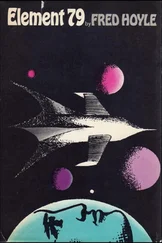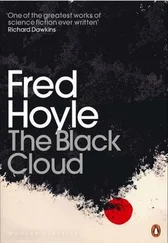“A godsend to millions.”
When she got on to the Intel proposition he hardly reacted. “Where is it all leading?” she asked. She did not really expect an answer, but she got one.
“A year ago that machine had no power outside its own building, and even there we were in charge of it.” He spoke without passion as if reiterating an old truth. “Now it has the whole country dependent on it. What happens next? You heard, didn’t you? We shall go ahead, become a major force in the world again, and who’s going to be the power behind that throne?”
He indicated the television, as she had done; then he seemed to tire of the conversation. He wandered across to his record-player and switched it on.
“Could you have controlled it?” Dawnay was unwilling to let the subject go.
“Not latterly.”
“What could you have done?”
“Fouled it up as much as possible.” He began to sort out a record among a pile of L.P.s. “It knows that, now it has its creature to inform on me. It had me pushed out. ‘You can’t win,’ she told me.”
“She said that?”
Fleming nodded, and Dawnay frowned into her half-empty glass. “I don’t know. Perhaps it’s inevitable. Perhaps it’s evolution.”
“Look—” he put down the record and swung round to her. “I can foresee a time when we’ll create a higher form of intelligence to which, in the end, we’ll hand over. And it’ll probably be an inorganic form, like that one. But it’ll be something we’ve created ourselves, and we can design it for our own good, or for good as we understand it. This machine hasn’t been programmed for our good; or, if it has, something’s gone wrong with it.”
She finished her drink. There was possibility in what he said—more than possibility, a sort of sane logic which she had missed lately. As an empirical scientist, she felt there must be some way in which it could be tested.
“Could anyone tell, except you?” she asked.
Fleming shook his head. “None of that lot.”
“Could I tell?”
“You?”
“I have access to it.”
He immediately lost interest in the record. His face lit up as if she had switched on some circuit inside him. “Yes—why not? We could try a little experiment.” He picked up from his table the pad with the negatived name-code on it. “Have you somebody over there can feed this in?”
“Andre?”
“No. Not her. Whatever you do, don’t take her into your confidence.”
Dawnay remembered the operator. She took the pad, and Fleming showed her the section to be fed in.
“I’m out of my depth, I’ll admit that,” she said. Then she put down her glass and went out.
As she walked across the compound, she could hear the beginning of some post-Schoenbergian piece of music from Fleming’s chalet; then she was in the computer building and heard nothing but the hum of equipment. Andre was in the control room, and a young operator. Andre kept herself even more to herself since the affair of her hands. She haunted the computer block like a pale shadow and seldom left it. She made no attempt to communicate with anyone, and although she was never hostile she was completely withdrawn. She looked with slight interest at Dawnay coming in.
“How’s it getting on?” Dawnay asked.
“We have put in all the data,” Andre said. “You should have the formula soon.”
Dawnay moved away and joined the operator at the input unit. He was a young man, a very fresh post-graduate, who asked no questions, but did as he was told.
“Input that too, will you?” Dawnay gave him the pad. He rested it above the keyboard and started tapping.
“What is that?” Andre asked, hearing the sound.
“Something I want calculated.” Dawnay kept her away from it, until the display panel suddenly broke out into wild flashing.
“What are you putting in?” Andre snatched at the pad and read from it. “Where did you get it?”
“That’s my business,” said Dawnay.
“Why don’t you keep out of this?”
“You’d better leave us,” Dawnay told the operator.
He rose obediently and wandered out of the room.
Andre waited until he had gone.
“I do not wish you any harm,” she said then and there was not passion but great strength in her voice. “Why don’t you keep out?”
“How dare you talk to me like that?” Dawnay heard herself sounding weak and ridiculous, but she could only answer as it took her. “I created you—I made you.”
“ You made me?” Andre looked at her with contempt, then crossed to the control panel and put her hands on the terminals. Immediately the display lamps became less agitated, but they continued to flicker so long as the girl stood there, strong and positive like a young goddess. After a minute she moved away and stood looking at Dawnay.
“We are getting rather tired of this—this little joke,” she said calmly, as if delivering a message. “Neither you, nor Dr. Fleming, nor anyone else can come between us.”
“If you’re trying to frighten me—”
“I don’t know what you’ve begun now. I cannot be responsible.” Andromeda appeared to be looking through her into a space beyond. The output printer went noisily into action, and Dawnay started at the sound. She followed Andre over to it, and by the time she got there the message finished. Andre examined the paper, and then tore it off and gave it to her.
“Your enzyme formula.”
“Is that all?” Dawnay felt a sense of relief.
“Isn’t that enough for you?” asked Andre, and watched her go with a set, hostile face.
Dawnay had three assistants working for her at the time: a senior research chemist, a man, and two post-graduate helpers, a boy and a girl. Between them they made a chemical synthesis based on the new formula. It involved a good deal of handling in the laboratory, but none of them worried about it because it had no irritant effect. By the end of a day or two, however, they were all beginning to feel signs of lassitude and wasting. There seemed to be no reason, and they worked on, but by the end of the third day the girl collapsed, and by the following morning Dawnay and the man had keeled over as well.
Hunter packed them off to the sick-bay, where they were soon joined by the boy. Whatever the disease was, it accelerated fast; there was no fever or inflammation, its victims simply degenerated. Cells died, the basic processes of metabolism slowed or stopped, and one after another the four weakened and slid into a state of coma. Hunter was desperate and appealed to Geers, who put a screen of silence round the whole business.
Fleming did not hear details until the fourth day, when Judy broke security to tell him. He immediately phoned Reinhart and asked him to come from Bouldershaw, and he persuaded Judy to find a paper for him. When she gave it to him, he locked himself up in his room with it all night, emerging in the morning grim but satisfied. But by that time the girl assistant was dead.
They were covering her face when Fleming arrived at the sick bay. The other three lay silent and still in their beds, their faces drawn and as pale as the pillows. Dawnay, in the next cubicle to the girl, was being kept barely alive by blood transfusion. She lay marble-still, like an effigy of some old warrior on a tomb. He stayed looking at her until Hunter joined him.
“What do you want?” Hunter was run ragged, and all rough edges. He gave up the effort to be so much as polite to Fleming.
“It’s my fault,” said Fleming, looking down at the drained face on the pillow.
Hunter half-laughed. “Humility’s a new line for you.”
“All right then—it wasn’t!” Fleming spun round on him, flaming, and fished a clip of papers out of his pocket. “But I came to give you this.”
Читать дальше












